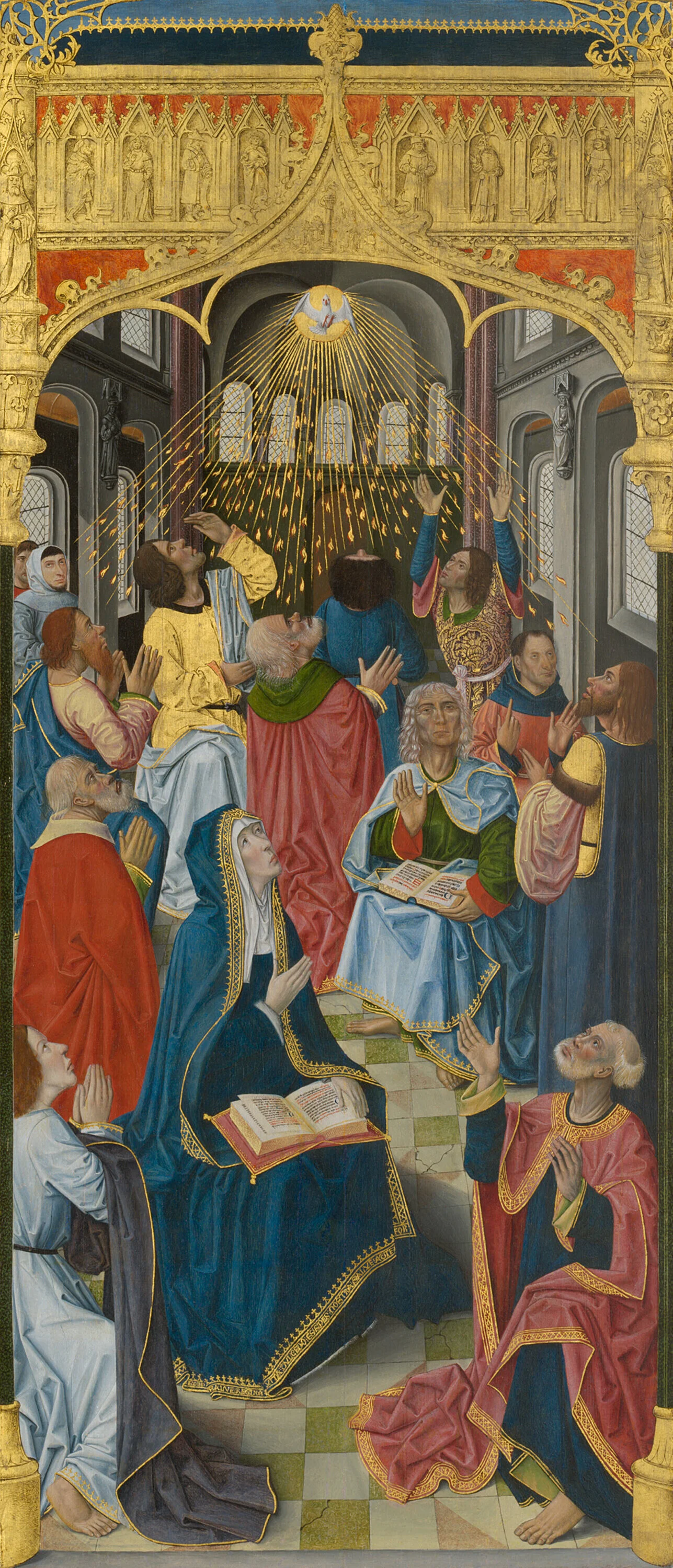On the day of Pentecost The Festival of Pentecost came 50 days after Passover (when Jesus was crucified). All the believers were meeting together in one place. Suddenly, there was a sound from heaven like the roaring of a mighty windstorm, and it filled the house where they were sitting. Then, what looked like flames or tongues of fire appeared and settled on each of them. And everyone present was filled with the Holy Spirit and began speaking in other languages, Or in other tongues. as the Holy Spirit gave them this ability.
ACTS: 2:3, NLT
Visio Divina, In introduction
Scripture refers to the Holy Spirit in a few concrete ways, I think, to help us “see” something we cannot. In the Word, the Holy Spirit is described as a dove, fire, wind, water, oil, and even a still small voice. In our own lives, we may have encountered the Holy Spirit in other ways—sometimes, in ways that lack description. We need not allow the inability to articulate our own interaction with the Spirit, to invalidate the encounters we have had with God in this way. Accepting the limitations of our words is a way of acknowledging the mystery of Holy encounters.
If you are new to Visio Divina, this is simply another way of praying and listening for God, as you reflect on an image and consider the questions or thoughts that come to mind as you gaze at a piece of art. I like to have a journal nearby, so that I can write down those thoughts and questions as they arise. As you practice this, surrender the need to answer any questions that arise, right now. Recording them and give yourself permission to return to them at a later time, when you have had more time to prayerfully consider them.
Invitation to see
A note of encouragement before you begin… release yourself from the pressure to produce anything profound or “earth-shattering” during this time. This is intended to be a gentle period of listening and simply being with God in Spirit. You cannot fail at this exercise. Trust that as you seek to meet God in this space, you are not required to produce anything in response.
For today’s invitation, read the passage from Acts 2 (above) about Pentacost, and consider the following words used to describe this life-changing encounter with God: suddenly, roaring, filled, appeared, settled. Add any other words from this passage that stand out to you. Consider what thoughts come to mind as you highlight for yourself, the words that seem notable to you. What is it about these words specifically that you are drawn to? Looking closely at the image, what senses of yours are pricked as you reflect on this scene? Where does your eye settle when looking at this image? Are you drawn to specific colors, or faces? Is there a specific portion of the overall image that you are most drawn to? What about this holy encounter do you love most? What about it do you find challenging? In what ways is your faith encouraged by this historical account? If you were to paint yourself into this image, where would you place yourself? What would your posture be?
Spend some time with the image without rushing. Give yourself room to sit with whatever surfaces for you. Perhaps as you reflect, you might be inspired to pick up your own paintbrush and paints (included in your box) and express your thoughts and prayers this way. Let this be a time of listening and conversation with Jesus. When you are ready to step away, thank God for what He has shared with you during this special time. You don’t need to end this reflection in any specific way. If you’d like to, you can pray a blessing over yourself or sing the doxology (included in your playlist).
Image Credits:
Panels from the High Altar of the Charterhouse of Saint-Honoré, Thuison-les-Abbeville: Pentecost
The Art Institute of Chicago, Mr. and Mrs. Martin A. Ryerson Collection

